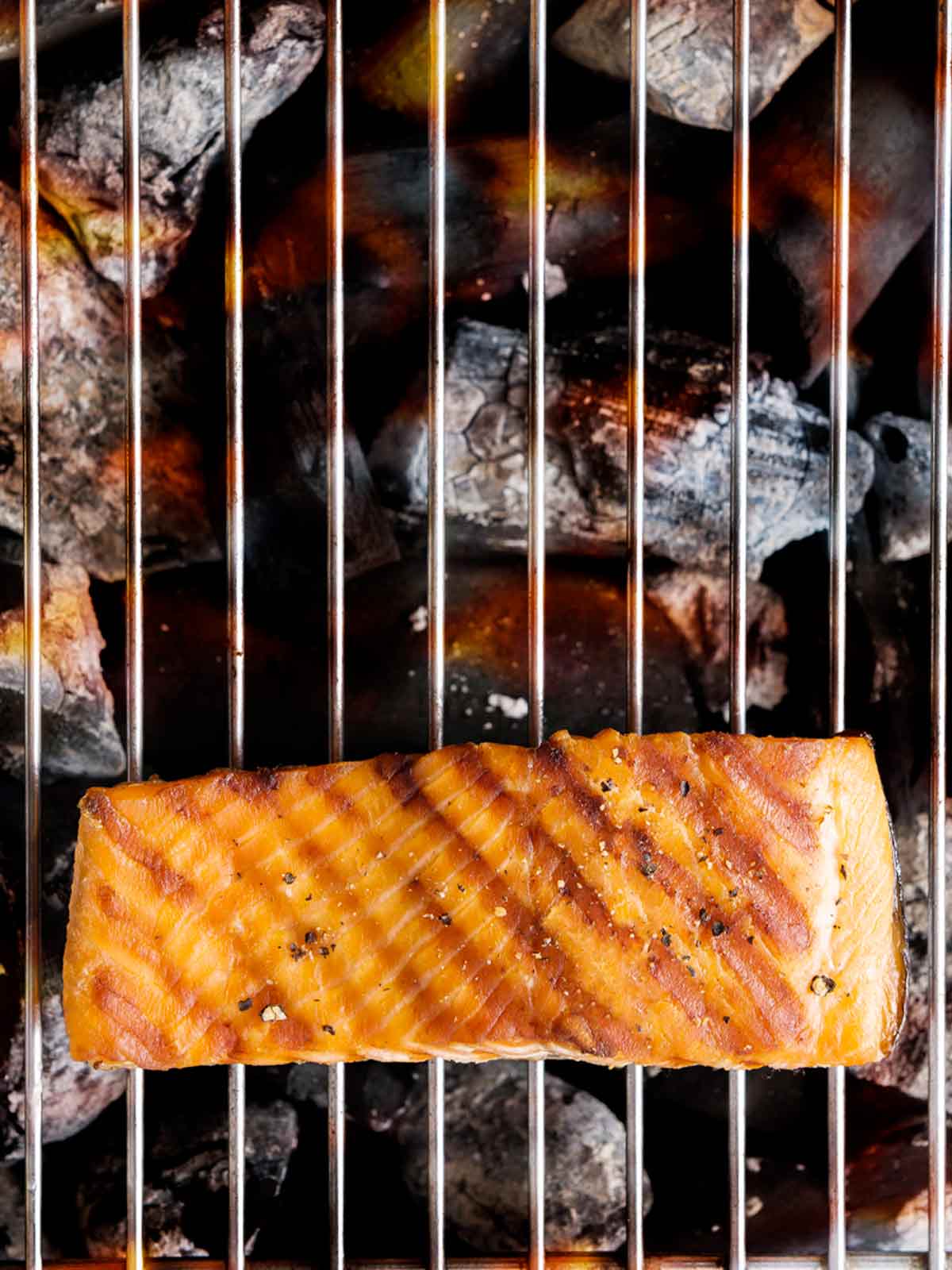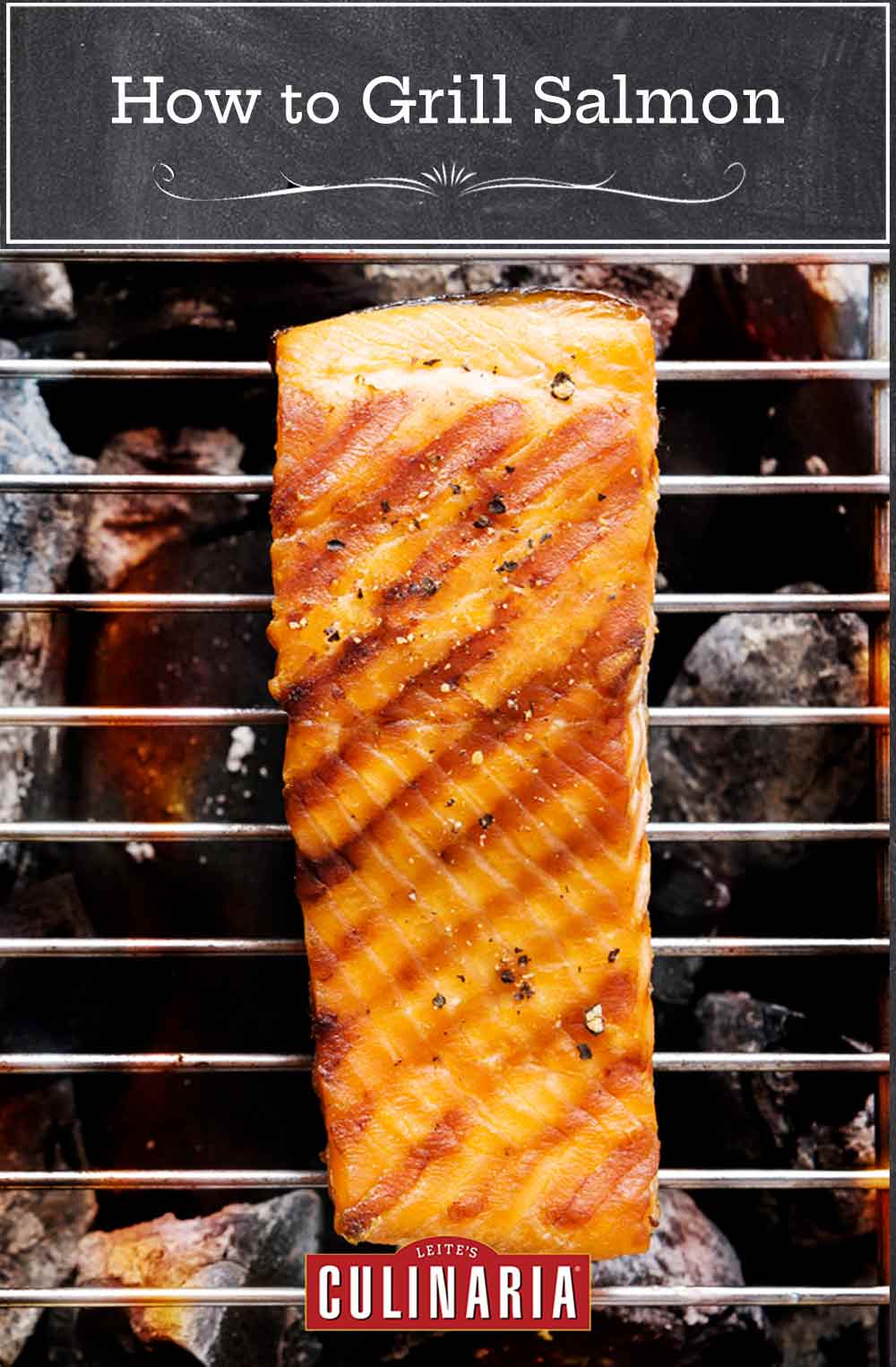
To learn how to grill salmon so that it’s flaky and tender yet doesn’t fall through the grill, David Leite turned to grilling guru Jamie Purviance for simple, accessible, foolproof tips and tricks that you can take to your backyard.
The third and final installment of my great afternoon of grilling with Jamie Purviance triptych, which began with me learning how to grill steak and continued with how to make rotisserie chicken, was the one I was looking forward to the least.
Not because I was tired of Jamie. But, boy, was I tired—just look at what 10 hours of shooting can do to a guy’s hair and the bags under his eyes. [Editor’s Note: That’s David begging for you to tell him how dashing he still looks. Don’t encourage this behavior.] No, I was dreading it because the subject matter is the bane of almost every skilled griller I know: fish.
Historically, whenever I’ve grilled fish, most of it ended up dropping through the grates and getting incinerated, each piece slowly shriveling as it turned a darker shade of charred.
After these moments grew too numerous—I mean how many backyard autos-da-fé must a man witness before he gets the hint as to his lack of affinity to fire and fish?—I simply walked away from anything aquatic. I figured if I were to singe anything, at least let it be something solid that I could chase around the grill with a pair of tongs, like grilled steak or rotisserie chicken.

But during our last video of the day, Jamie taught me three important things. Well, he taught me plenty of important things, but if you remember just these three, you’ll be able to stand facing your grill with a grate full of fish and not quiver. First, use high heat. Second, the 70/30 rule. And third, the zen of fish cookery.
The use of high heat
What blew me away was that high heat—upward of 500°F (260°C)—is the ideal temperature for fish, especially salmon. It sears the fish, helps it hold together better, and creates great grill marks that result in it releasing easier.
The 70/30 rule
Lower heat, which I always thought was best for such a delicate protein, actually causes the flesh to stick worse than your aunt’s thighs on plastic car seat covers. And sticking flesh is what causes you to lose your mind—and lose your fish to the coals beneath the grates—when you try to flip your fillets.
The 70/30 rule is something chefs use. It means to cook the fish for 70 percent of the time on the first side—the flesh side—and then to flip and cook the skin side for 30 percent of the time. Again, this reduces stickiness and keeps the fish juicy. Oh, and it lets you pull off what is without a doubt the coolest grill trick of the season: removing the fillet whole while leaving the skin on the grill. Boo-yah!
The Zen of fish cookery
This is the hardest of the three major points for me to put into practice. It’s all about becoming one with the fish and having patience. That mindfulness sort of thing. (Hell, I have a hard enough time becoming one with myself, let alone joining forces with my meal.)

But rushing things on the grill, especially something as delicate as fish, will only end up with the dog (yours or a neighbor’s) surreptitiously slinking away with your dinner that you chucked across the yard out of utter frustration. I speak from experience.
Need to practice the practice of zen cookery? I do, I must admit. But do it and you, too, will be able to create the beautiful piece of salmon as suavely as Jamie does in the video.
Originally published August 23, 2010



